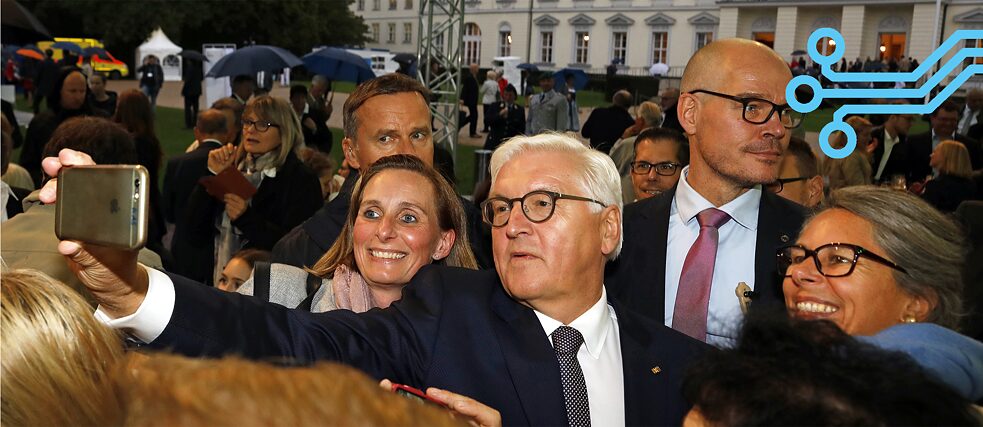Staging the self on social media
Politics as a stage

Politics has always played out on stages: from the popular assemblies of antiquity and to the live-feed public parliamentary debates of today, politicians have performed for their voters. Social media have both expanded and fundamentally changed this political stage.
By Martin Fuchs
Politics has always been a public activity as far back as the birth of democracy in ancient Greece. In Athens the ecclesia, or popular assemblies, were held in the Agora and later in the Theatre of Dionysus and on the Pnyx. Here every male citizen entitled to vote was allowed to speak and express his opinion – from the lectern still familiar today from many a parliament. Politics derives meaning from the stage upon which it takes place.
Social media has significantly expanded this stage. With just a few clicks, the whole world can now theoretically watch as politicians interact with constituents via Twitter, YouTube or Instagram. Technology has given political figures their own stage with great visibility and reach. There has been another fundamental shift as well: in the days before social networks, politicians were just the protagonists who trod the political boards, whereas today they also serve as their own publishers, producers, directors, dramatic advisors and actors in a personal union. And if, like many German parliamentarians, they don't have a digital communication team, they are also responsible for camera, sound, hair and make-up, and props.
Politics thrives on performance
Everything we perceive as political communication is staged in one way or another. Ideally, citizens are hardly aware of successful staging because it comes across as genuine. This also applies to social media, where politicians like to present themselves as particularly approachable and sometimes reveal personal details. This form of (self-)representation is well received by voters. The reach of a well-made Instagram story may not have reached the level of the nightly TV news broadcast yet, but it has surpassed many other formats in which politics has taken place so far.
The options offered by the digital stage have made politics and political communication more entertaining, easier to understand and more accessible. This does not necessarily mean content has to be more superficial, and current political issues are often discussed. For backbenchers, social media, along with personal appearances, is another effective way to raise their public profile outside the circle of their colleagues.
Not everyone is up to the challenge
The new media formats and opportunities have also enormously increased the demands placed on politicians. They also require well-honed communication skills for successfully explaining policies and attracting attention in democratic discourse. While opportunities for representation have become greater, more colourful and supposedly simpler – self-presentation on an individual, generally inexpensive digital stage takes both time and a knack for self-presentation.
Of course this daily production of political theatre leaves its traces on the actor’s political activities. Now that every politician is carrying around a stage in the form of a smartphone, many feel increased pressure to be omnipresent on the relevant social networks. Politicians feel the need to Tweet a comment or position on every hot topic, and strive to be the first to raise their visiblity in the constant stream of content. This information glut forces politicians to sharpen, polarize and scale down arguments, while keeping their statements as original and new as possible to be heard over the news cacophony. So mistakes are also made in the process, and hasty responses may include misinformation or be poorly thought out. It seems as if less and less consideration is being given to information before it is disseminated since social media have penetrated into every political channel of communication.
The public needs to move with the times too
As a society, we have to develop a more tolerant stance on the mistakes politicians are more likely to make in this digital world and not simply crush anything we don’t like or disagree with under a tsunami of indignation.
This applies pretty much across the board to all political representation - and is not unique to the rise of social media. More telegenic and elegant politicians skilled in the art of self-presentation have always had an advantage in video, live video and audio formats. However, this does not mean that their arguments are better or more important in public discourse. Even ideas presented with little rhetorical and dramatic flair should have a chance to be heard and disseminated along digital channels.